In a renewed effort to curb environmental indiscipline and enforce sanitation by-laws, the Accra Metropolitan Assembly (AMA) has arrested twenty-one traders at the Agbogbloshie Market for displaying and selling goods on open drains — a practice that continues to undermine the city’s fight against poor sanitation and flooding.
According to officials from the Public Health Department of the AMA, the exercise, which took place on Monday, forms part of the Assembly’s ongoing operations to restore order in the capital and promote a cleaner urban environment. The traders were apprehended during a dawn operation led by environmental health officers and city guards, with support from the Ghana Police Service.
The arrested traders were said to have ignored repeated warnings and notices served by the AMA regarding the dangers of displaying goods on open drains. The Assembly noted that such practices not only obstruct water flow and cause flooding but also expose consumers to health risks through contamination of food and other perishable items.
The Head of Public Affairs at the AMA, Gilbert Nii Ankrah, confirmed the arrests in a statement, stressing that the Assembly will continue to take stringent measures against individuals and businesses who flout sanitation regulations. He added that the offenders will be processed for court to serve as a deterrent to others.
“These arrests are part of our broader campaign to ensure compliance with the city’s public health and sanitation by-laws. Selling on open drains is not just unsightly, it is a public health hazard. The AMA will not relent in ensuring that Accra becomes the clean, modern city we all aspire to live in,” Mr. Ankrah stated.
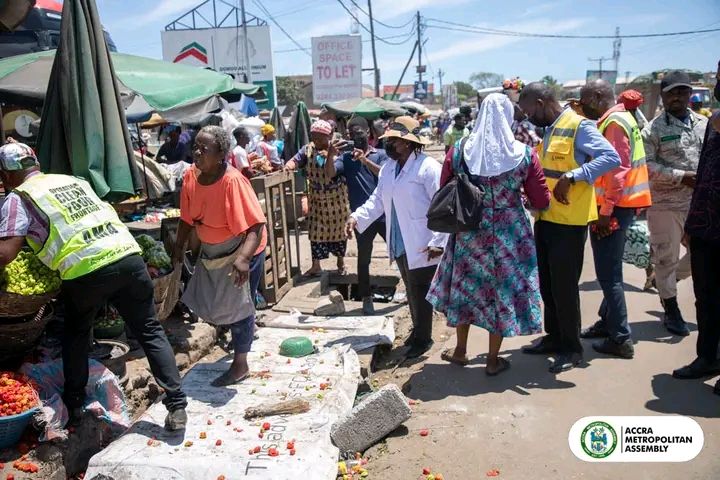
He further explained that the AMA’s sanitation task force will continue routine surveillance in other major markets including Makola, Kaneshie, and Okaishie, to ensure that traders adhere to environmental standards. “We have had numerous engagements with market leaders to sensitize traders, yet some still choose to disregard the rules. This is unacceptable,” he added.
Environmental health officers have long complained that open drains around major market areas have become breeding grounds for mosquitoes, rodents, and other vectors of disease due to the continuous dumping of waste and market refuse. Many drains are often choked with plastic waste, food remnants, and debris — conditions that worsen during the rainy season and lead to severe flooding in parts of the capital.
The AMA has, over the years, embarked on a series of clean-up campaigns, community education drives, and enforcement exercises, but the challenge persists, particularly in densely populated markets such as Agbogbloshie, where the convergence of commercial activity and poor waste management creates persistent health and sanitation problems.
Some traders who witnessed the arrests described the incident as “a wake-up call,” urging the Assembly to combine enforcement with continuous education and improved infrastructure. A few, however, expressed frustration over what they perceive as selective enforcement, arguing that while some offenders are arrested, others continue to operate in similar conditions without sanctions.
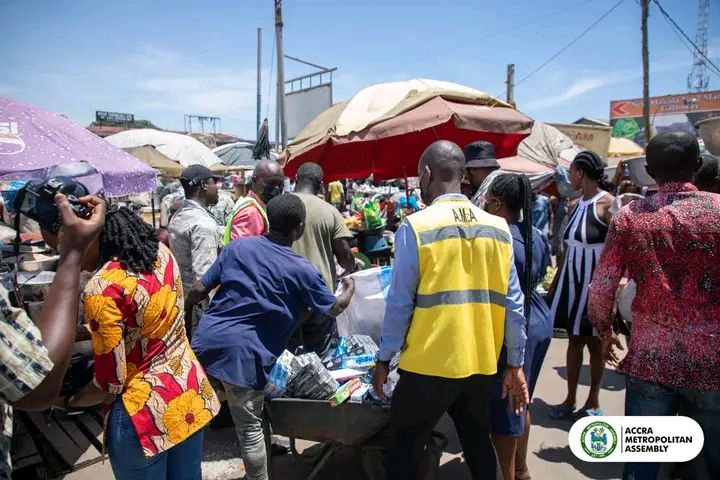
A trader identified as Adwoa, who sells vegetables at Agbogbloshie, told reporters, “We understand that selling on drains is wrong, but sometimes space is a problem. The market is congested, and the authorities need to create more stalls for us. We don’t want to be arrested, but we also have to sell to survive.”
Her sentiments reflect a broader concern among informal traders in Accra, many of whom cite limited market space and lack of organized trading structures as reasons for operating along unauthorized areas. Experts say while enforcement is crucial, urban planning must also consider the economic realities of informal market economies.
Urban environmentalist, Dr. Freda Annoh, told local media that while the AMA’s action is commendable, a sustainable solution requires a balance between enforcement, education, and infrastructural investment. “You cannot enforce sanitation laws in isolation. The traders need adequate facilities — proper drainage, waste disposal systems, and designated stalls. Otherwise, the problem will only shift from one market to another,” she explained.
The Accra Metropolitan Assembly has in recent months intensified efforts to improve sanitation in the city under the ‘Operation Clean Accra’ initiative, launched to ensure compliance with sanitation by-laws and restore discipline in public spaces. The initiative also aligns with the government’s long-term agenda to make Accra the cleanest city in Africa — a vision first declared by President Nana Addo Dankwa Akufo-Addo in 2017.
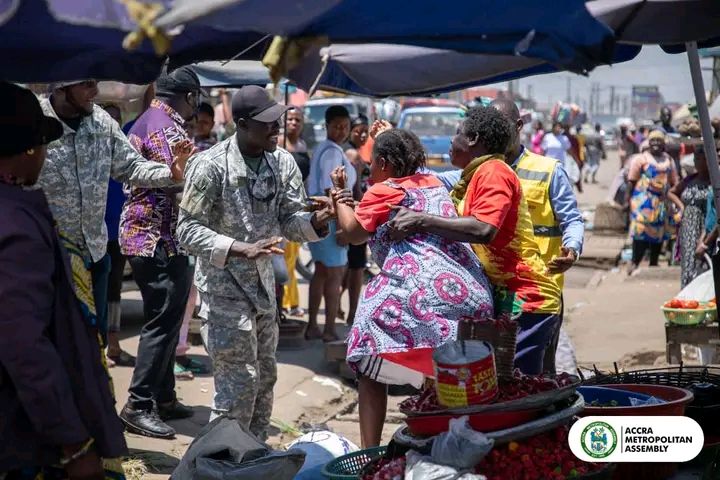
As the 21 traders await prosecution, the AMA has reiterated its commitment to maintaining law and order, ensuring that markets operate under hygienic and regulated conditions. The Assembly has called on all traders, hawkers, and market associations to cooperate with city authorities and contribute to a cleaner, healthier Accra.
While challenges remain, the latest enforcement drive signals the AMA’s determination to sustain its sanitation reform efforts, despite recurring issues of overcrowding, poor waste disposal, and non-compliance among some sections of the trading community. The outcome of these prosecutions may well determine whether the Assembly’s resolve to instill lasting discipline in the capital’s markets will finally yield results.
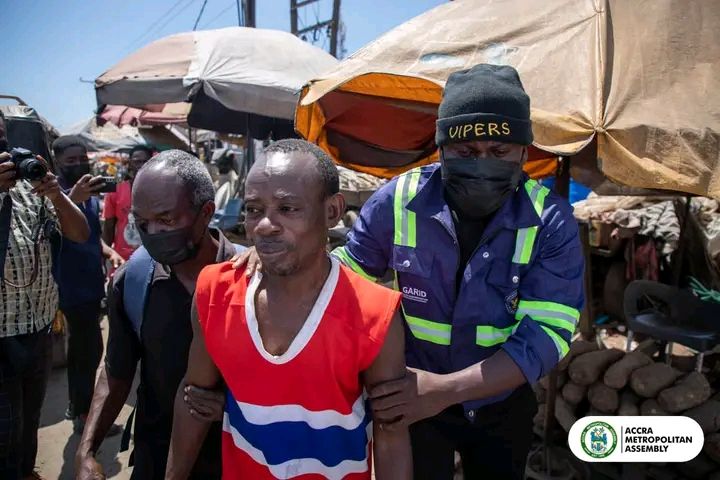
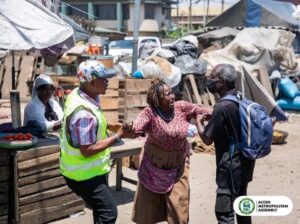
Over 28,000 Ghanaians Die Annually from Air Pollution, Says AMA Health Official

